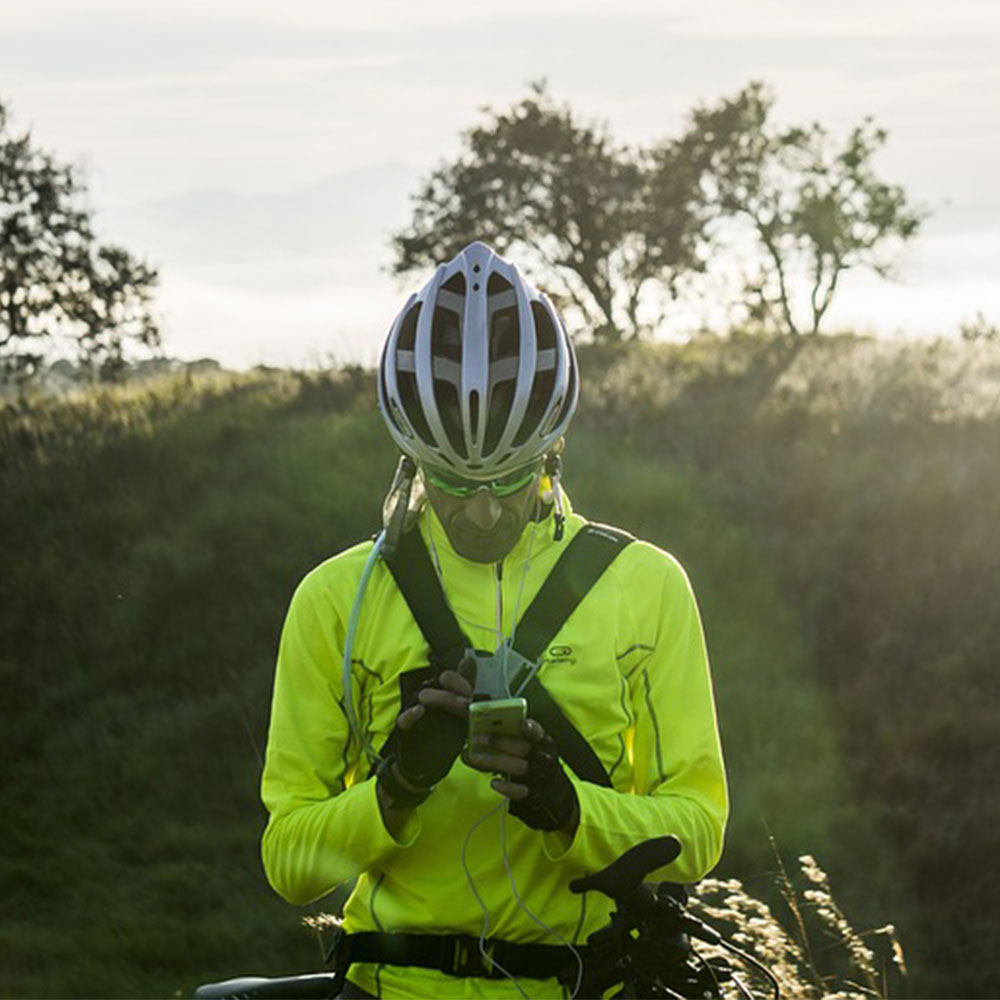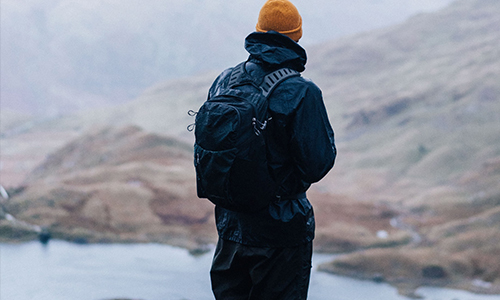Essential Gear for an Unforgettable Backpacking Adventure
Author

Chris shares his passion for cycling, hiking, skiing, and climbing from Buxton, in the Peak District. As a blogger for Outdoor Look, Chris shares outdoor tips and indoor tricks to help you get the most out of your time spent outside. When he's not out adventuring he's making videos or trying to keep up with his 4-year-old son.
Immersing yourself in the great outdoors through backpacking is an exhilarating way to disconnect from the chaos of daily life and reconnect with nature's beauty. Beyond the thrill of adventure, spending time amid natural surroundings offers both mental and physical benefits. Whether you are a seasoned backpacker or embarking on your first trip, being well-prepared with the right gear is essential for a safe and enjoyable experience. In this comprehensive guide, we will explore the essential items you need to carry for your backpacking trip, ensuring your comfort, survival, and memorable moments in the wild.
- The Backpack:
Your trusted backpack will be your lifeline on the trail, carrying all your gear and supplies. Select a pack size based on the duration and nature of your trip. For short summer getaways, a 35 to 45-litre pack should suffice, while longer expeditions or those in colder and wetter seasons may require a larger pack, usually 50 litres or more. Strike a balance between carrying all essential items for warmth and safety while avoiding unnecessary weight.

- Sleep System:
Ensure a comfortable and cosy night's rest with a well-planned sleep system. Bring a high-quality sleeping bag, a reliable sleeping pad or mattress, and an improvised pillow, like a dry bag filled with clothes. Choose a sleeping bag that strikes the right balance between weight, compressibility, and comfort, tailored to the expected weather conditions.
- Shelter:
For a restful night's sleep, you'll need adequate shelter. Several options cater to different preferences and weather conditions. Tents are beginner-friendly and provide a perfect balance of protection and livable space. If you prefer warm-weather camping, hammocks are a great choice, but be sure to include a tarp for rain protection. Minimalists and fair-weather backpackers may opt for a bivvy bag or simple tarp for lightweight convenience.
- Hydration Solutions:
Staying hydrated is paramount during backpacking journeys. Carry a water container or hydration reservoir and consider water purification or filtering systems if freshwater restocking opportunities are scarce.
- Food and Cooking:
Fuel your body with nutritious meals by packing a stove and fuel supply, a lighter, pots, and utensils for cooking. Opt for compact and lightweight cooking equipment that efficiently prepares dried foods, and hot beverages, and purifies water. Additionally, carry enough food to sustain your energy throughout the entire trip, taking into account your calorific needs.

- Clothing and Toiletries:
Selecting appropriate clothing ensures comfort and protection during your adventure. Avoid cotton clothes, as they take longer to dry and provide inadequate insulation when wet. Opt for synthetic and wool fabrics known for their excellent temperature regulation properties. Pack essential clothing items, including socks, underwear, trousers or shorts, t-shirts, long-sleeved shirts, an insulated jacket, headwear, gloves, waterproof jacket, and trousers. For personal hygiene, carry a small camping towel, toilet paper, sunscreen, a compact toiletry bag, a poop spade for responsible waste disposal, bug or midge repellent, and menstrual products if needed.
- Essential Tools and Accessories:
Your backpacking tool kit should contain vital items to ensure safety and convenience. Include a reliable head torch for hands-free illumination, a pocket knife or multi-tool for various tasks, a mobile phone, a power bank, and extra batteries. Other useful extras may include duct tape for quick repairs, a whistle for emergencies, and a backup lighter.
By following this comprehensive checklist, both novice and experienced backpackers can ensure a safe, comfortable, and unforgettable adventure. From essential gear like shelter, hydration, and sleep systems to clothing and toiletries, being well-prepared enhances your connection with nature, ensuring an enriching and memorable backpacking experience for years to come.
Author

Chris shares his passion for cycling, hiking, skiing, and climbing from Buxton, in the Peak District. As a blogger for Outdoor Look, Chris shares outdoor tips and indoor tricks to help you get the most out of your time spent outside. When he's not out adventuring he's making videos or trying to keep up with his 4-year-old son.
- Speed Up Your Post-Hike Recovery with These 6 Essential Tips
- Cycling through Tranquil Roads and Coastal Views on the Isle of Wight
- The Essential Guide to Hiking Safety: 5 Tips Every Hiker Should Know
- Run Smart, Run Strong: Your Guide to Injury-Free Running
- Embrace Biking: Essential Tips for Beginners
Categories
- Sport (28)
- Product Reviews (3)
- Team Outdoor Look (7)
- Mike Wild (2)
- Mike Payton (2)
- Suse Hammond-Pears (3)
- Snowboarding (12)
- Latest Offers (105)
- Shop Talk (1)
- Competitions (7)
- Walking (413)
- Lifestyle Fashion (8)
- Travel (86)
- Kit Guides (176)
- Workwear Clothing (6)
- Safety Workwear (4)
- Health/Fitness (289)
- Skiing (91)
- Great Outdoors (1316)
- Cycling (92)
- January 2025
- December 2024
- November 2024
- October 2024
- September 2024
- August 2024
- July 2024
- June 2024
- May 2024
- April 2024
- March 2024
- February 2024
- January 2024
- December 2023
- November 2023
- October 2023
- September 2023
- August 2023
- July 2023
- June 2023
- May 2023
- April 2023
- March 2023
- February 2023
- January 2023
- December 2022
- November 2022
- October 2022
- September 2022
- August 2022
- July 2022
- June 2022
- May 2022
- April 2022
- March 2022
- February 2022
- January 2022
- December 2021
- November 2021
- October 2021
- September 2021
- August 2021
- July 2021
- June 2021
- May 2021
- April 2021
- March 2021
- February 2021
- January 2021
- December 2020
- November 2020
- October 2020
- September 2020
- August 2020
- July 2020
- June 2020
- May 2020
- April 2020
- March 2020
- February 2020
- January 2020
- December 2019
- November 2019
- October 2019
- September 2019
- August 2019
- July 2019
- June 2019
- May 2019
- April 2019
- March 2019
- February 2019
- January 2019
- December 2018
- November 2018
- October 2018
- September 2018
- August 2018
- July 2018
- June 2018
- May 2018
- April 2018
- March 2018
- February 2018
- January 2018
- December 2017
- November 2017
- October 2017
- September 2017
- August 2017
- July 2017
- June 2017
- May 2017
- April 2017
- March 2017
- February 2017
- January 2017
- December 2016
- November 2016
- October 2016
- September 2016
- August 2016
- July 2016
- June 2016
- May 2016
- April 2016
- March 2016
- February 2016
- January 2016
- December 2015
- November 2015
- October 2015
- September 2015
- August 2015
- July 2015
- June 2015
- May 2015
- April 2015
- March 2015
- February 2015
- January 2015
- December 2014
- November 2014
- October 2014
- September 2014
- August 2014
- July 2014
- June 2014
- May 2014
- April 2014
- March 2014
- February 2014
- January 2014
- December 2013
- November 2013
- October 2013
- September 2013
- August 2013
- July 2013
- June 2013
- May 2013
- April 2013
- March 2013
- February 2013
- January 2013
- December 2012
- November 2012
- October 2012
- September 2012
- August 2012
- July 2012
- June 2012
- May 2012
- April 2012
- March 2012
- February 2012
- January 2012
- December 2011
- November 2011
- October 2011
- September 2011
- August 2011
- May 2010
- April 2010
- March 2010
- February 2010
- January 2010
- November 2009
- October 2009
- September 2009


Submit a Comment